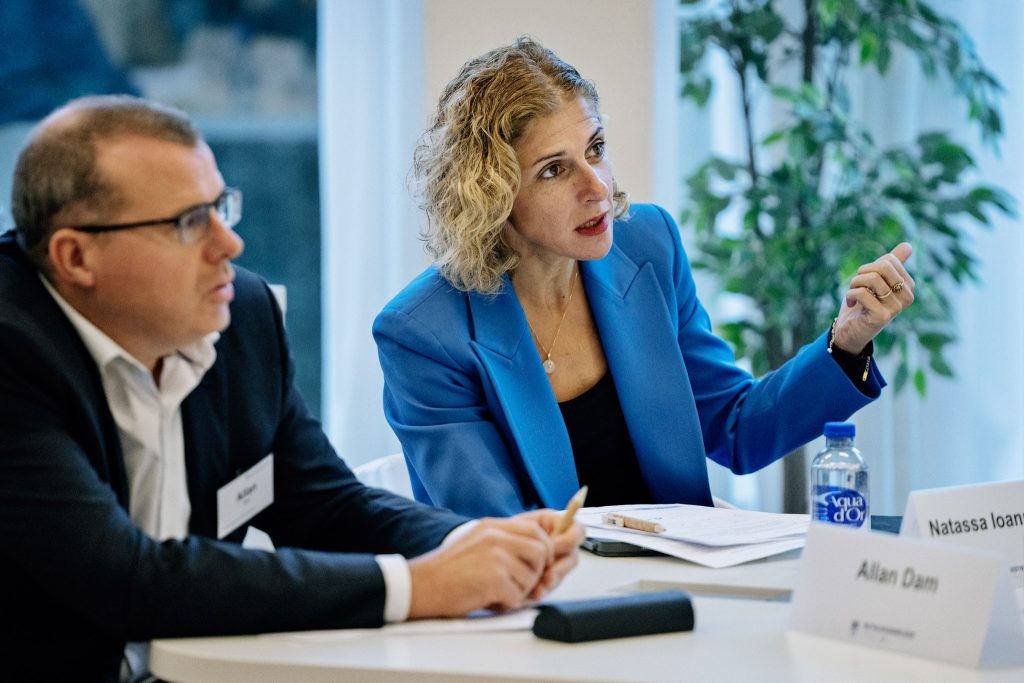May 29, 2024

How the Blue Board Leadership Program is boosting the prowess of present and future maritime directors
Serving in the leadership of most business ventures is a tall order – not least against the backdrop of international conflict and uncertainties that are having huge impacts on the supply chains of global shipping and trade. Tough questions abound daily, sometimes hourly, and even minute by minute over how to react to emergencies and to over-arching emerging trends. Even if the right broad strategies are in place, organisations and their leaders must be mentally agile enough to adapt swiftly to circumstances.
It is precisely at such crossroads that there is a need to bring into play a sound reservoir of knowledge as the basis for a holistic approach to finding solutions. This is where the distinctive Blue Board Leadership Program stands ready to help provide the right grounding, to improve sharply the competencies of present and future members of ‘blue boards.’ The program is an initiative of CBS Board Leadership Education and the Blue MBA Alumni Academy and is funded and supported by the Danish Maritime Fund. It offers a robust training regime geared to the range of subject areas that command, or should command, the attention of board-level representatives. The project benefits from the active support of accomplished professors (from CBS and other international universities and business schools), experienced board members, and partners from EY (who contribute their expertise on annual reports and finance issues) and leading law firm Kromann Reumert which has offices in Copenhagen, Aarhus, and London.
It works on the premise that developing an appropriate intellectual and practical ‘tool kit’ will fortify the prowess of each board member so that he or she can delve quickly and deeply into the tasks and problems coming across (sometimes hurtling across) their desks and find ways to communicate their conclusions with real effect. Much of the narrative they face may be driven by conflict outside the boardroom arena, but that is what should motivate integrated and exhaustive analysis.
Among topics covered by the Blue Board Leadership Program are the ABC of board membership (including how to handle the dynamics within individual boards), corporate law, legal responsibilities, financial management, succession planning, how to formulate decisions, the vital need for diversity, building the capital base, assessing the global outlook for the maritime industry, geopolitical and societal trends, sustainability, digitalisation, innovation, disruptive business models, cyber risk, cyber security and cyber governance, and supply chain trends.
With the world tearing itself apart in one way or another, and the best-laid plans capable of falling apart, many ‘experts’ are ready with snappy answers. Unfortunately, those answers usually turn out to be partially or downright wrong.
In the past two years, and even more so in the past few months, factors including the legacy effects of the Covid-19 pandemic, smouldering and active wars in Ukraine and elsewhere, the force of climate change, a new upsurge of piracy, and intractable inflation, have heightened the interconnected tensions.
The flare-up of developments in the Middle East is a sharp example of shifting scenarios that pose dramatic and unexpected consequences for trade, shipping lanes, demand for commodities, and pricing. The numbers involved can grow rapidly (for instance, a rethink has had to be made about the routeing of the 30% of global container traffic that normally passes through the region). That crisis, parallel with the Ukraine war, has restructured the flow of oil and other commodities through some of the most important waterways in the world, and the widespread economic implications have yet to play out fully.
More than at any time in the past few decades, the geopolitical situation dictates everyday concerns including security and the vulnerability of markets to disruption. If re-routeing via the Cape of Good Hope of Red Sea traffic goes on for an extended period, it is likely to contribute to delay in achieving CO2 emission targets, as the longer sailings will require more bunkers and push up other costs. Reports have suggested it might lead to a more than five-fold increase in CO2 emissions per twenty ft container.

Simultaneously, on the other side of the world the Panama Canal draught restrictions are causing new headaches for voyage planners, with some services arranging partial transits over land.
Of great concern on all these fronts is that the data to assess the risks is often unwieldy or opaque amid the fog of hostilities and drama of meteorological surprises. Data can drive efficiencies, but do we have the skills to interpret it? Apart from big changes in digitalisation, on the menu for the maritime industry are defence against cyber risks, and the spreading net of international regulation. It is recognised that directives are not uniformly applied: regulators, industry experts and technologists have much work ahead on such imperatives as designing the new framework for autonomous ship operations.
Part of the spur towards a more sustainable maritime industry by way of greater voyage optimisation and de-carbonisation is the introduction of the EU’s Emissions Trading System (ETS), the community’s commercial lever to mitigate the effects of climate change, and a watershed as the world’s first major carbon market. To stimulate the use of renewable and low-carbon fuels, ships (initially cargo and passenger vessels of 5,000 gross tons or more) that trade to, from or within the 27-nation bloc will have to comply with the ETS; and with a provision named FuelEU Maritime. The latter mechanism will from 2025 impose increasing caps on the carbon intensity of fuel. FuelEU Maritime portends new collaboration among stakeholders, including fuel suppliers, shipbuilders, and shipowners, to accelerate the affordability and availability of sustainable marine fuels.
The ETS requires that ships pay for the right to emit greenhouse gases by buying allowances which are financial instruments that can be traded. Operators of all ships will have to calculate their attained Energy Efficiency Existing Ship Index (EEXI) to measure their energy efficiency and to initiate the collection of data for reporting their annual operational carbon intensity indicator (CII) and CII rating, which will be A, B, C, D or E (where A is the best). Any ship rated D for three consecutive years, or E for one year, will have to submit a corrective action plan to show how a level of C or above will be achieved. This is bound to mean that costly remediation plans will have to be drawn up for several thousand ships globally.
Blue board members are thus unavoidably among those who have a big responsibility to drive the targeted reduction by 2030 in EU greenhouse gas emissions of at least 55% compared to 1990 levels, but at the same time they may have in the light of a greater cost of financing their assets and an increased cost of trading in the EU, to adjust their operational policies.
Discussions within the Blue Board Leadership Program are sure to address the big talking point of the past year: the rapid advances in the field of artificial intelligence which could be heralding an age of opportunity in the industry or be a source of problems and unforeseen risks. Even more important than AI though is what might be called the “people question” and boards will need to focus on harnessing human resources ashore and at sea where perceived threats in the shipping lanes, working conditions in some sectors, and bureaucracy over visas are deterring recruitment.
All in all, it cannot be denied that demands upon, and expectations of, current and future ‘blue board’ members are continuously accelerating, presenting increasing complexity, unpredictability, and volatility, and the need for a tight grip on risk management and on aligning with the Environmental, Social, and Governance (ESG) agenda which is high in the sights of reputable investors.
A challenging matrix therefore for men and women at the helm of business decisions, but an invigorating prospect for all who are passionate about the industry – so let us not despair. The ‘blue boards’ that navigate skilfully these turbulent waters will take advantage of new market opportunities, increase financial yields, and enhance shareholder value.
Incorporating sound principles and best practice for effective board membership, the Blue Board Leadership Program during the eight days of each course explores case studies – around 20 of them – so that participants can learn from successes and from failures. Led by an impressive faculty of two dozen professors, board leaders, advisors, and industry experts, they see how high-performance boards operate under different governance regimes.
The Blue Board Leadership Programme began in late 2022, drawing on expertise from CBS Executive, which designs and runs senior executive and board governance educational programmes, and the Blue MBA Alumni Association, whose members have graduated at various times over more than two decades from Copenhagen Business School’s renowned Executive MBA in Shipping & Logistics (the Blue MBA).
Blue MBA Alumni Association/Academy chief executive Irene Rosberg has said that the Blue Board Leadership Program has as its starting point the requirements of the maritime industry, including its many and varied service providers, for leadership that has at its fingertips a wide and up-to-the-minute variety of skills and abilities.
The next Blue Board Leadership Program will take place in two modules of four days each: Class of 2025 module 1, December 2-5, 2024; module 2, January 27-30, 2025. Both will be at Copenhagen Business School, CBS Board Education, Porcelaenshaven 22, 2000 Frederiksberg, Denmark.
Further information is available from program directors Kim Vestergaard: kv@cbs-executive.dk and Irene Rosberg ir.mba@cbs.dk.
*Kindly note that the article was first published in Ship Management International, March-April Issue

